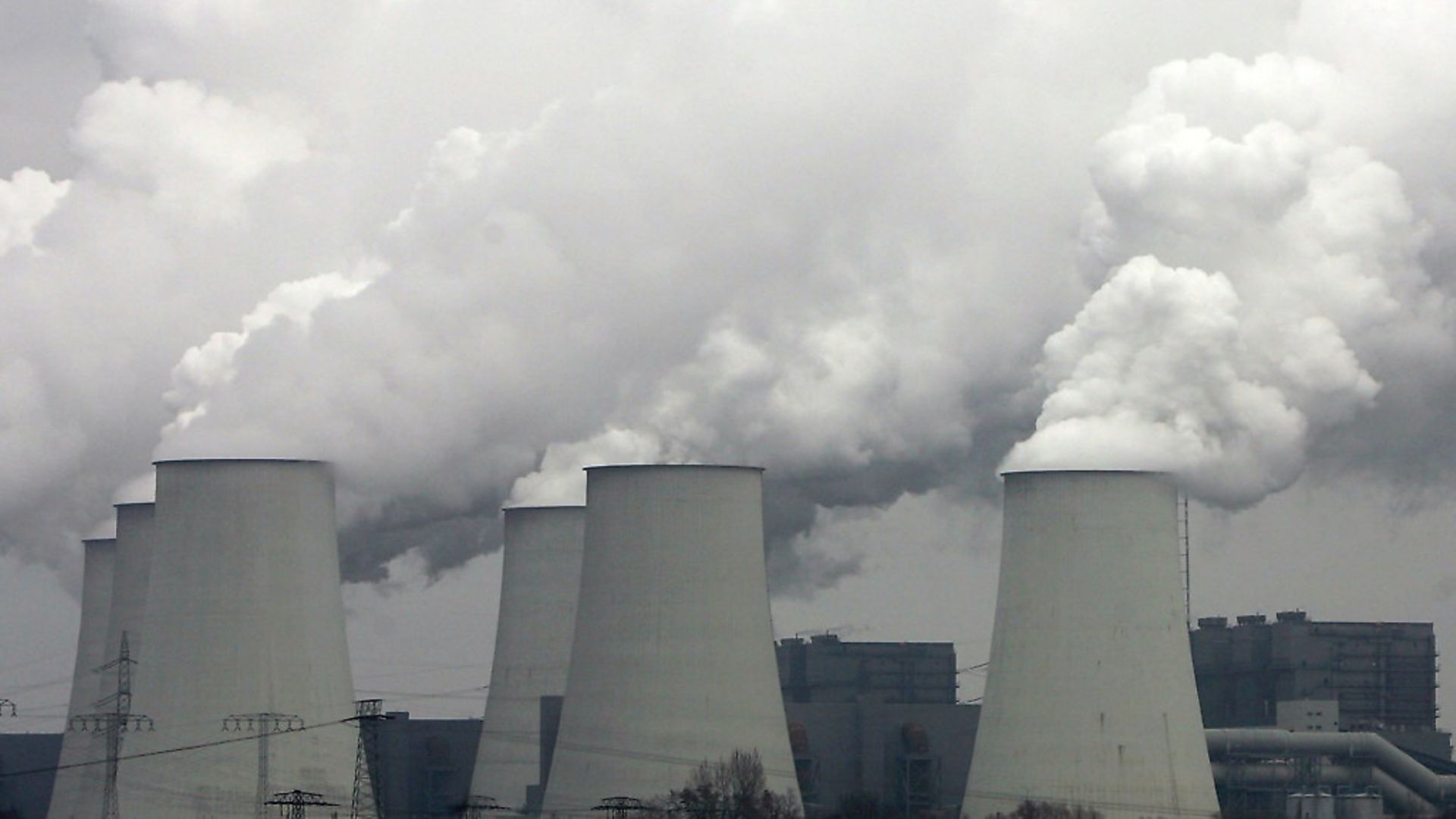
The urgency of the environmental cause is not just down to damage being caused, but the creeping fatalism that could overtake it, says ZOE WILLIAMS. More optimism is needed.
It’s great when everyone agrees, right? We’ve had enough of the politics of division, the zero-sum atmosphere where nobody’s happy until their opponent has been obliterated.
So why doesn’t it fill me with confidence to hear everyone broadly agree on climate change?
There is a tiny amount of dissent from the village-idiot wing of the Conservative Party, but otherwise, the consensus is rock solid. Civil society, from students to the Women’s Institute; the world of commerce, from businesses to the Bank of England; politicians, from the right to the whole of the left; from The Sun to The Guardian, everybody’s on the same page. Climate change isn’t just real – it presents a peril unmatched by any other in history.
The problem is the peculiar slippage, where consensus turns inexorably to hopelessness. It’s a pattern we can see with inequality: after decades of fighting over whether or not it existed, we finally alighted on the broadly-agreed notion that inequality was bad for the wellbeing of people at every rung.
Almost immediately, the problem became too large to manage, as if the very act of agreeing about it turned it into a gestalt, whole-world fact, an act of God that no mere mortal could change. All solutions sounded either pathetically small (better bus routes) or frighteningly large (tear down the system and start again).
The same pattern is emerging with climate change: we know that individual solutions aren’t enough. We’ve been recycling for years and it hasn’t made any difference. We know it needs change at a systems level, but it has become so politically normal to make big promises and do nothing that we don’t believe politicians are constitutionally capable of action. We know that one nation can’t do anything on its own, but we’ve also seen how hard it is to get a globe working in concert. We know that our system is stacked with false incentives, extractive industries, needless production, investments in fossil fuels which, if their value were ever realised, would fry the lot of us, but we can’t conceive of an alternative that doesn’t look like the stone age. If you’ve made it to the end of this paragraph, I salute you: I succumbed to despair two points ago.
And yet, there is a way to talk about this – specifically, for politicians to talk about it, since they’re the ones at the steering wheel – that would transform our perception of the environment, from this tragic gallows of our own making, to a site of genuine hope and ambition. It’s not with Cameronesque gimmicks (I can neither forgive nor forget the huskies), nor Johnsonian political expedience, full of green guff one minute, tax cuts and inaction the next.
First, emphasise how much a government – when it is determined, when it isn’t distracted – is capable of.
The 2008 Climate Change Act, aiming to reduce carbon emissions by at least 26% by 2020 and at least 80% by 2050, was a good thing. The targets weren’t ambitious enough, and the governments since 2010 have not been competent enough. But we met the first two carbon budgets, and are set to meet the third.
Emissions in 2018 were 44% lower than they were in 1990. Specific industries have soared, thanks to provisions spurred by that Act (in fact, if we want to get personal, spurred by Ed Miliband, then secretary of state for energy and climate change, who may turn out to have done something far more significant for the future than winning an election).
This time last year, wind power was delivering 35% of the UK’s energy use every week. And that’s not even our strongest suit: we have 50% of Europe’s potential tidal energy, 9% of the world’s.
To put this in perspective, it is like taking silver at the Olympics for rowing, then finding out you are even better at karate. This is replicated across Northern Europe – there was a day last year when Denmark exceeded 100% of its energy from wind. Don’t get me started on Spain and their solar capacity. There is a very real prospect of an entirely-renewable future, which will arrive even faster with cooperation, supergrids and the grand generosity that comes with a limitless resource.
The future is one not of carbon austerity but of untold prosperity, in which we wouldn’t bother with carbon even if we could.
Second, when we say capitalism is standing in the way of these solutions, when we say the entire system needs remaking from the ground up, we’ve got to get away from the idea that it will feel like being cast out of Eden.
We are not living in some bountiful market, which perfectly orders our lives but has this inconvenient blindspot around fossil fuels.
The old order understands the economy as a market and a state, in which the state tries with varying competence and sincerity to regulate the market, and the market tries – according to your point of view – to evade regulation, out of either greed or desire to create wealth for all. The narrative follows the exact same tramlines as Wile E Coyote versus Roadrunner, a lot of banging and crashing, never any change or progress. Because of the false binary on which so many discussions are based, we find it hard to conceive anything meaningfully beneficial to the environment that doesn’t involve a penalty somewhere else – in higher taxes, or fewer choices. The reality is, there is no fix for the climate that doesn’t also involve some other immeasurably life-altering improvement. To take one example: a huge amount of the UK’s emissions are related to its housing stock; the country needs a mass programme of retrofitting, alongside new housing built to energy neutral standards, just to nix this pointless waste. Will this also generate thousands of skilled jobs, and provide houses that people can afford to stay warm in? Inevitably, yes: but we’ll just have to learn to live with that.
Third, stop saying “change everything” and break it down: a new industrial strategy; a new transport policy; a new stance on agriculture and land use; new models of common ownership, so that the profits of renewable energy are equally distributed; while we’re here, a new model of the commons.
It’s not just a patch of scrubland that you used to be able to graze a sheep on, before some 13th century bastard fenced it off. Everything of value in the 21st century – from energy to intellectual property, from data to infrastructure – will belong to all of us, if we can just get our acts together.
Fourth, stop worrying about what we can and can’t afford. The only thing we really can’t afford is inaction. Besides, if Brexit taught us anything, it’s that governments can miraculously always find the money for something they want hard enough. Let’s make the next thing we want that hard to be the future of the planet, rather than… well, never mind what Brexit was.
Fifth, stop saying net zero: net is a sly word, forever associated with the amount you thought something was going to cost, before they added VAT. Zero isn’t a goal, it’s an absence of goals. Decarbonise is sexier, with the science-ish overtone of a plan that someone, somewhere knows how to achieve.
There is a pervasive sense of insecurity about the future; you hear it everywhere. You hear it from school kids and in business podcasts (that you accidentally listened to, while you were looking for some true crime). You hear it from local councils and radical protesters. None of it is crazy, or irrational. Apocalyptic scenarios could come to pass, and in places already have. But agreement is turning into acceptance, which is a mournful, arid territory. We need to start fighting for optimism – which, finally, might be a fight we actually enjoy.
Warning: Illegal string offset 'link_id' in /mnt/storage/stage/www/wp-includes/bookmark.php on line 357
Notice: Trying to get property 'link_id' of non-object in /mnt/storage/stage/www/wp-includes/bookmark.php on line 37







